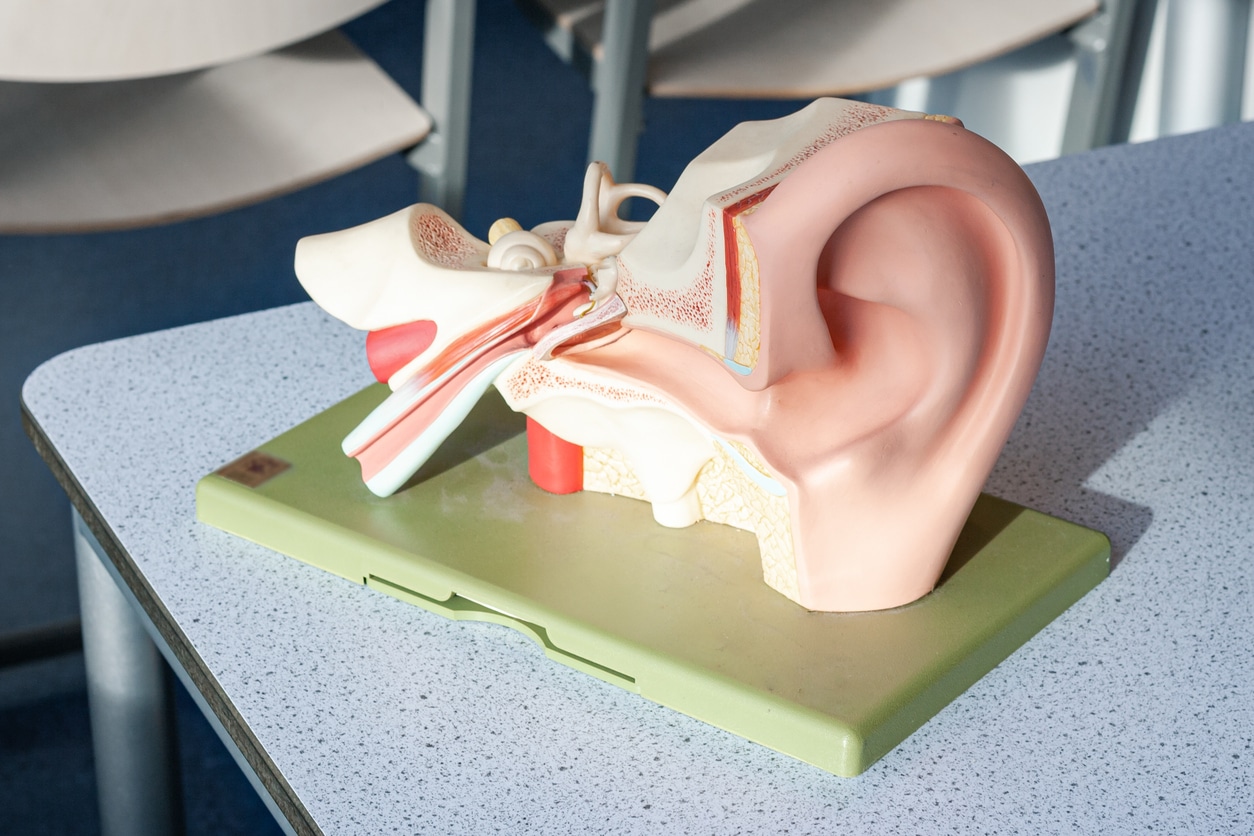Hearing the word “tumor” from a doctor can be pretty scary, and it’s normal to feel stressed at the mention of it. But taking a little time to learn about nonmalignant temporal bone tumors and how they’re treated can help calm your worries.
The Temporal Bone Explained

Located at the skull’s base, the temporal bone plays a pivotal role in our auditory system. In addition to protecting the brain, the temporal bone houses important structures of the middle and inner ear, including the cochlea, vestibule and the vestibulocochlear nerve. When a nonmalignant tumor grows on these structures, preventing them from functioning properly, hearing loss can occur.
Common Nonmalignant Temporal Bone Tumors
Some tumors aren’t cancerous but can still mess with your ear’s structure, causing issues like ear drainage and hearing loss. Two common ones are:
- Acoustic Neuroma (Vestibular Schwannoma). This tumor arises from an overproduction of Schwann cells, which normally aid nerve function. When these cells accumulate around the vestibular nerve, which is key for hearing and balance, they can compress it, leading to hearing loss. Treatment options vary from observation to surgery and radiation, depending on the tumor’s size and symptom severity.
- Cholesteatoma. Characterized by an abnormal growth of skin cells behind the eardrum, cholesteatomas can damage hearing and lead to infections or eardrum rupture if they grow too large. Surgical removal is typically necessary, sometimes requiring multiple procedures to both remove the growth and repair any inner ear damage.
While you can’t prevent nonmalignant tumors from developing, watching out for signs of hearing loss and scheduling regular hearing tests and ENT (ear, nose and throat) consultations can aid early detection and treatment, reducing the risk of severe complications.
Signs of Hearing Loss
Hearing loss is often the first indication of a problem with the temporal bone. Whether the loss is gradual or sudden, it’s important not to ignore the changes. Difficulty hearing in everyday situations, like not being able to follow a conversation in a noisy environment or missing out on the daily specials at Plonk Missoula, warrants a consultation with a healthcare provider.
How Can Hearing Aids Help?
If you’re dealing with permanent hearing loss from a nonmalignant temporal bone tumor, hearing aids can be a game-changer. These devices amplify sound, making it easier to engage in conversations and appreciate the noises around you.
Maintaining ear health is an ongoing commitment. Regular hearing assessments and ear examinations are crucial for detecting issues early on. Contact Western Montana Hearing and Speech today to schedule a consultation with one of our specialists.